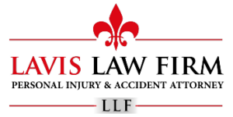Surveillance of individuals receiving Louisiana workers’ compensation benefits or individuals involved in a car accident or other accident may be conducted if the insurance company is seeking to destroy the injured person’s credibility and diminish the value of the case. Large insurance companies typically have a department devoted to claim investigation with experienced investigators contracted to provide professional surveillance. Because evidence obtained through legally conducted surveillance can be used in court if necessary, it is important to know what to expect from surveillance operatives.
Surveillance 101
Surveillance operatives can easily obtain personal information including your:
• physical description
• home address
• neighbors’ names
• medical appointment times
• contact information of healthcare providers
• vehicle registration information
Once this information has been gathered, the operative scopes out the subject’s community and identifies the best vantage point for subject surveillance. Surveillance operatives often park their vehicle down the street, near a home or business that is for sale, or on the property of a neighbor or business owner who is likely misinformed of the real subject of investigation and asked to cooperate in the interest of the community.
Although surveillance strategies vary depending on the reason for surveillance and the type of evidence needed by the insurance company, investigators are typically interested in observing the subject’s daily routine, determining the extent of the subject’s physical abilities, and comparing these observations to the medical limitations set for the subject. If an insurance company is suspicious of a subject’s reported physical limitations, the operative may videotape the subject leaving for a morning exercise class or performing strenuous lawn work that exceeds reported limitations. Alternatively, a subject suspected of claiming workers’ compensation while secretly working at a different job may be videotaped leaving the house for work in the morning and tailed to his undisclosed workplace.
Tricks You Should Know
• Surveillance does not follow an 8 am-5 pm business day schedule. Operatives may be in place at any time, including the early morning or weekend, especially if the activity allegedly beyond the scope of the subject’s physical limitations is typically performed at a specific time of day or week such as dog walking, fishing, or home improvement projects.
Common traps set by the hired investigator to “catch” a subject performing activities beyond physical limitations set by the treating physician include the following:
• ordering a package delivered with a weight outside of the injured workers’ restrictions and videotaping the worker lifting the package
• pretending to be a driver needing help changing a flat tire or pushing a broken down car;
• recording sounds such as hammering that, while not visible on tape, indicate the subject may be healthier than limitations would suggest.
• tampering with the injured person’s automobile (e.g., disconnecting or draining the battery) so the investigator can take photos of the subject working on his automobile.
How Surveillance Evidence is Used
The results of subject surveillance will be used at different times in the claim review process depending on the company’s policies. Often, video footage, the investigator’s final report, and a physician’s supplemental report filed after the physician views the surveillance footage are compiled and used in the early stages of claim review to encourage the subject to return to work without legal action. If the issue does proceed to trial, the evidence obtained by subject surveillance may be used in conjunction with the operative’s testimony. Every detail, sound, and observation witnessed by the operative conducting surveillance may become a part of the legal record.
Social Media and Workers’ Compensation & Other Accident Cases
Nowadays, nearly everyone, including insurance companies, has a Facebook. Many insurance companies have reportedly taken to messaging and “friending” some claimants on social media websites. Last year, a Pennsylvania woman involved in an auto accident was sent a Facebook friendship request from the at-fault driver’s insurance adjuster assigned to handle the claim less than 24 hours after the accident occurred, and this practice is increasingly common.
It is important to remember that nothing you post on social media sites such as Facebook, LinkedIn, MySpace, and Twitter are guaranteed to remain private. With over 500 million Facebook users and about 100 million Twitter users, you never know who is looking at your profile or viewing your photos. If you are involved in a workers’ compensation or personal injury lawsuit, remember that insurance companies are diligently searching for you online and exercise common sense. Even with strict privacy settings in place, limited profile information is often still accessible to searchers. Additional information capable of damaging a case could be accessed through a friend’s less protected page.
What Can You Do?
• Do a Google search on yourself and review the results
• Never approve friend requests from people you do not know
• Read the privacy statements of any social media outlet you use
• Select the highest privacy settings for your Facebook profile
• Realize that comments you post on other pages may not be as private as you think and censor accordingly.
• Be smart about your “tagged photos” settings and review photos you are tagged in often. If you are not currently working due to an on the job injury but have a photo posted of a family rock climbing trip, assume that the insurance company will find it and try to use it.
If you need have any questions about your injury claim, call a Louisiana Personal Injury Lawyer

